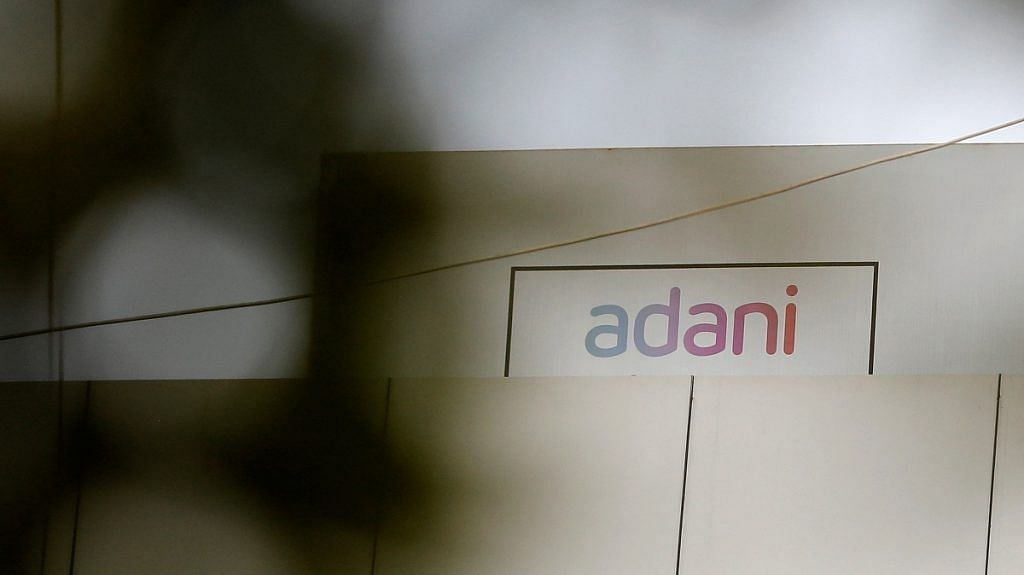New Delhi: The government and the SEBI have agreed with the Supreme Court’s suggestion to have an expert panel that could suggest measures to strengthen the share market regulatory framework and to avoid a repeat of Hindenburg-like impact on Adani investors.
Appearing before a bench led by Chief Justice D. Y. Chandrachud, solicitor general Tushar Mehta said the government had no objection to the constitution of such a committee by the court.
He, however, urged the court to allow the government to suggest the task of composition of the expert committee as well as its members.
Suggestion from the government on this front would avoid any adverse impact that could arise as a result of the court order on domestic as well as international investments, Mehta explained. He said the judicial order should not reflect on the existing regulatory framework that is well-equipped to deal with situations.
The solicitor made his submission before the bench that is looking into a set of PILs demanding an inquiry into findings of the Hindenburg Research report.
A short note on behalf of the SEBI (Securities and Exchange Board of India) was also given to the court in which it has claimed that the events mentioned in the PILs relate to events that are localised to a single group of companies and that there is no significant impact at a market-wide level that might warrant a system-level review of the regulatory framework.
During the hearing of PILs on 10 February, the bench took note of the losses suffered by Indian investors which run into several lakh crores due to the fall in share prices of Adani Group companies in the face of Hindenburg’s allegations.
While directing the SEBI to file a detailed response on how a more robust mechanism can be put in place, the top court also proposed setting up an expert committee to give suggestions to strengthen the existing regulatory framework and give wider powers to the market regulator.
In response, Mehta informed the court Monday that the existing structure is robust, not only regime wise, but otherwise, to take care of the situation. “However, responding to the suggestion, which fell as a loud thinking from my lords, government has no objection to constitute a committee,” Mehta said.
But he voiced his concern over the court fixing the committee’s remit and sought indulgence to suggest the same so that the market regulator’s and existing regime’s competency is not undermined and to avoid any negative impact on investments. “If the court permits us, then we can suggest the remit of the committee with possible suggestions of the names of its members.”
The solicitor general assured the prospective members suggested by the government would be people of some calibre and standing. “The remit of the committee would be very relevant. We may file it for your consumption,” he added, indicating he would submit details in a sealed cover.
At this, the court asked Mehta to put in a note by Wednesday and fixed the hearing of the matter to 17 February. “Give us a note so that we have something to apply our mind to, before putting it in the order,” the bench, also comprising justices P.S. Narasimha and J.B. Pardiwala, said.
On the court’s query to the existing regulatory framework, the SEBI filed a 25-page note giving details of the existing mechanism in place for stable operations and development of the securities markets.
Apart from delving into the role of SEBI as a specialised regulator, the note disclosed that the regulator was inquiring into both the allegations made in the Hindenburg report as well as the market activity immediately preceding and post the publication of the report to identify violations of regulations.
As for Hindenburg, the note said, it’s a short seller research company that studies companies they believe have governance or financial issues. “Their strategy is to take a short position in the bonds/shares of such companies at the prevailing prices and then public their reports. If the markets believe the reports, the prices of bonds/shares start to fall. Once the fall starts, other institutions who have ‘stop loss limits’ also start selling their holdings of bonds/shares irrespective of whether they believe the report or not, thus triggering a downward spiral in the bond/share prices,” the note said.
In respect of the Adani group, the note revealed, that during the time when there was a significant rise in its share prices, SEBI’s framework, which is designed to control excessive volatility in stocks, was triggered numerous occasions, for long periods of time, which acted and served as advice to investors about the additional risk related to the higher level of volatility in those shares.
The note claimed that the set of events mentioned in the PILs have not had “any significant impact at the systemic level.”
While the shares of the group have declined, the wider Indian market has shown full resilience. “Indian markets have seen far higher turbulent times in the past, especially during Covid pandemic period…,” it said.
(Edited by Tony Rai)
Also Read: How Hindenburg report is affecting Adani’s business abroad — limits on trading, probes
